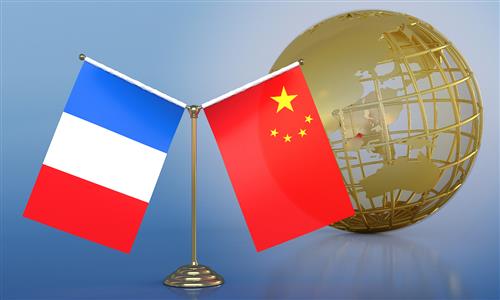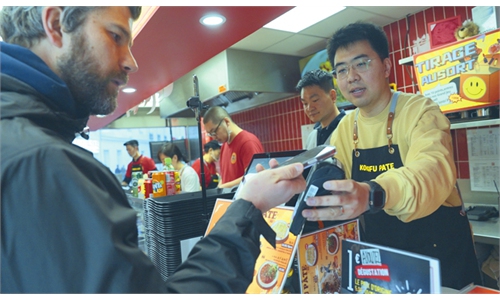ARTS / CULTURE & LEISURE
Foochow Arsenal witnesses 150 years of China-France exchanges
‘A starting point’
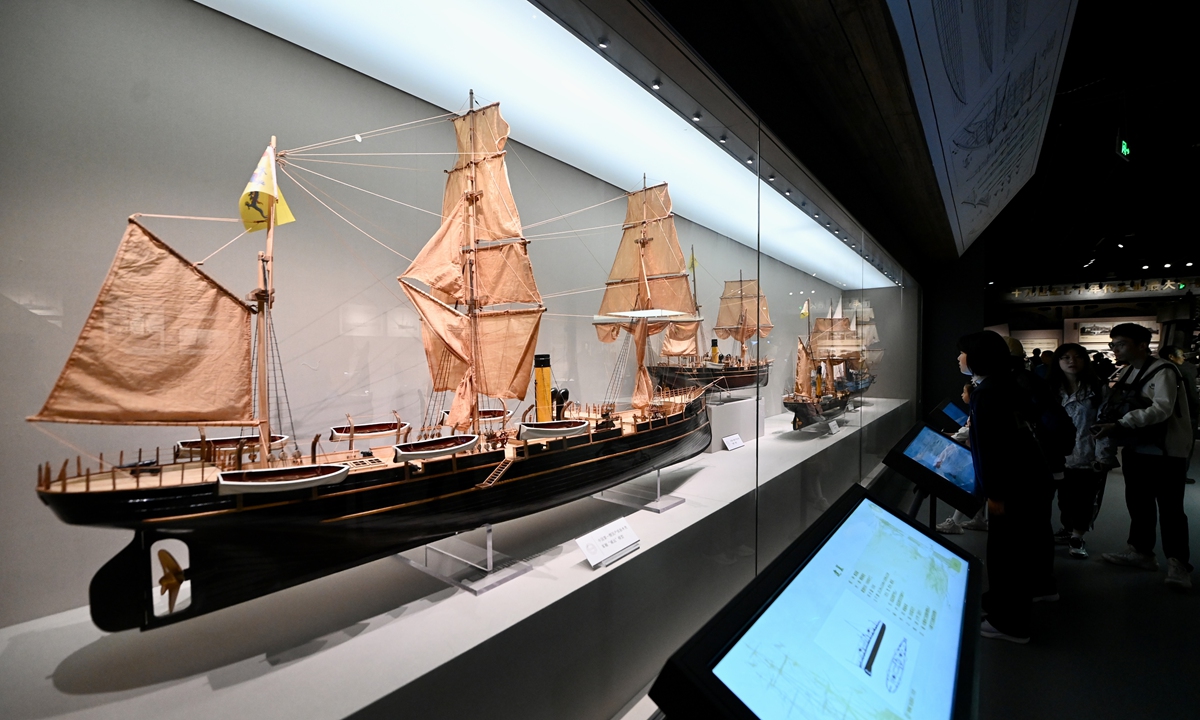
Ship models at the Museum of Foochow Arsenal 1866 Photo: VCG
Editor's Note:The Foochow Arsenal is a precious industrial and cultural heritage site that stands as a witness to China's Self-Strengthening Movement and a memorable chapter in the country's modernization journey.
Within the Museum of Foochow Arsenal 1866 is the statue of Prosper Giquel, a Frenchman who is still remembered for his contributions to China's modern shipbuilding history. The heritage of the Foochow Arsenal is evidence of the exchanges of Chinese and French civilizations and historical link between the two countries.
The Global Times visited the site to take our readers back to a time when cultural exchanges and mutual learning between China and France extended beyond technology, exerting important influence on China's politics, military, education, science, technology, diplomacy and culture.
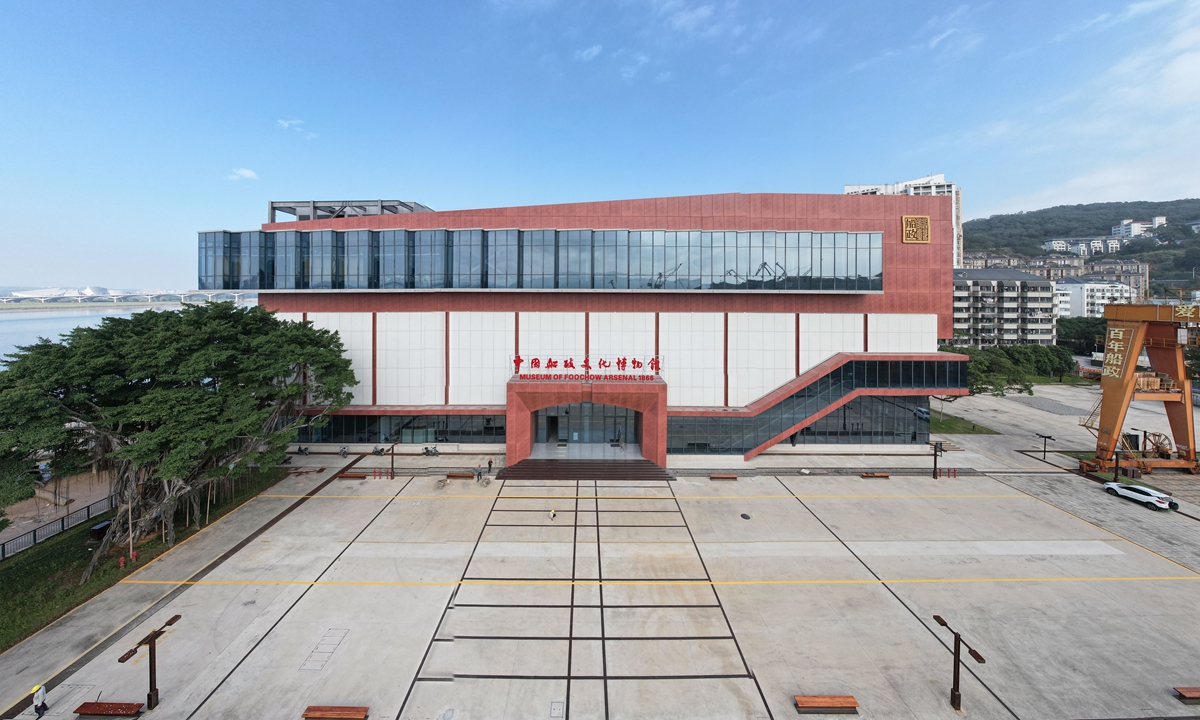
The Museum of Foochow Arsenal 1866 Photo: Courtesy of the Museum of Foochow Arsenal 1866
Inside the Museum of Foochow Arsenal 1866, which was transformed from a warehouse at the former Mawei Shipyard in Fuzhou, East China's Fujian Province, stands a bust of the French naval officer Prosper Giquel, who was better known in Chinese as Ri Yige. Along with the sculpture, there are a copy of a French newspaper with an article introducing China written by Giquel and a dictionary published in 1874 titled Dictionnaire de Poche Francais-Chinois (Pocket Dictionary of French-Chinese), compiled by Giquel, on display. This dictionary can be regarded as one of the first modern Chinese-French dictionaries.A decade ago, on the occasion of the 50th anniversary of the establishment of diplomatic relations between China and France, the bust was presented to the Fuzhou city government by the French Embassy in China to commemorate Giquel's significant contributions to China's modern industrial development.
The year of 2024 marks the 60th anniversary of the establishment of diplomatic relations between China and France. Over 150 years ago, the establishment of the Foochow Arsenal, or Fuzhou Chuanzheng in Chinese, in Fujian Province, a Qing Dynasty (1644-1911) shipyard, was closely linked to France, as it served as a witness to the exchanges and integration of Chinese and French science, technology and culture.
Reporters noted an elderly couple walked into the museum and greeted a guard, saying that they had come all the way from Beijing to visit the museum. They were drawn here by a newly released documentary about the arsenal on television. Touched by their ancestors' bold experiments and commitment to learning about maritime engineering, navigation and other advanced Western technologies, as well the long-lasting friendship between China and France, they bought plane tickets so they could visit the birthplace of Chuanzheng culture in person.
"We have visited France and found the French people to be very warm and friendly. In addition to the assistance and support provided by France to China through shipbuilding during the Qing Dynasty, France was also the first major Western country to enter into formal diplomatic ties with New China... There is so much to look forward to in terms of continuing the friendship between the two countries," the husband said.
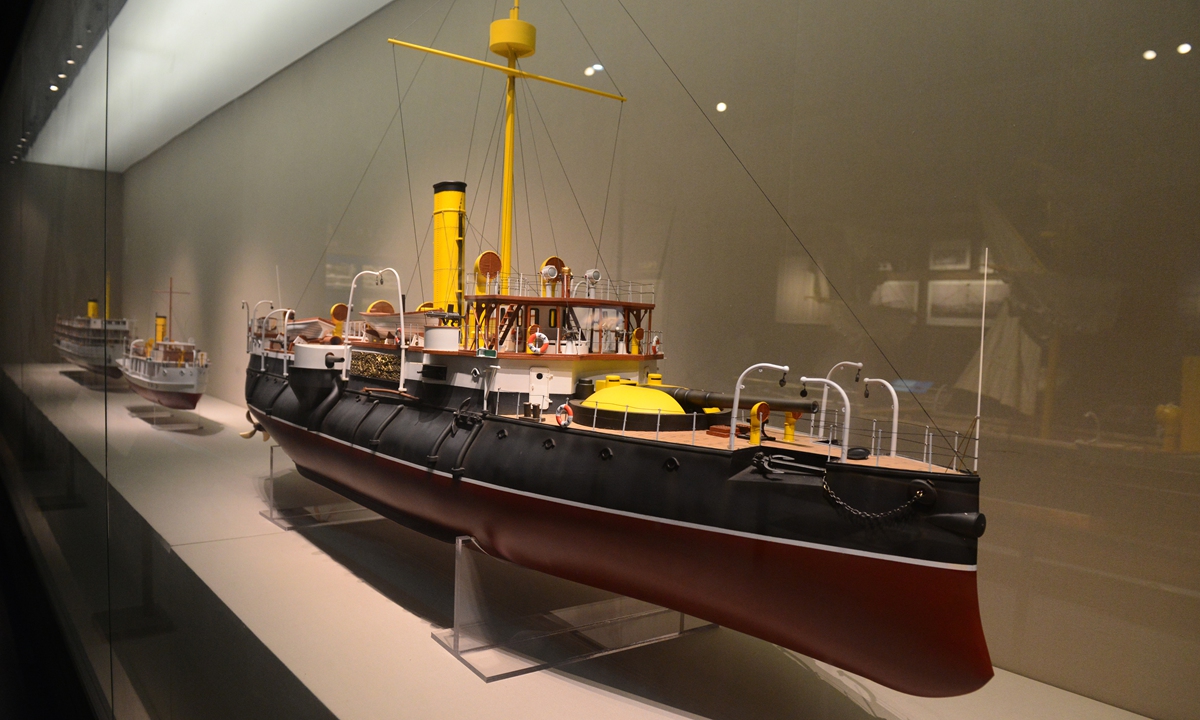
A ship model at the Museum of Foochow Arsenal 1866 in Fuzhou, East China's Fujian Province Photo: VCG
Historical bondsIn the mid-19th century, when China was faced with great changes of history, patriots began to search for ways to revitalize the nation and the shipyard in the Mawei area of Fuzhou, founded in 1866, was among these efforts that aimed to help China catch up with Western technological development and defend China's marine sovereignty.
Establishing shipyards, building warships, establishing schools and sending students abroad for study were among the series of innovations carried out. A group of outstanding industrial and naval talents rose to contribute to the country's modernization in various fields such as the military, culture, science and technology, diplomacy and the economy.
It turned to the new chapter for China's modern industries such as shipbuilding, electric lighting, telecommunications, railway transportation and aircraft manufacturing and was considered as a key part of China's modernization process.
Designed and built by French engineers, many of the shipyard's structures still stand today. Giquel was pivotal in fostering cooperation with his Chinese counterparts. He was crucial in introducing advanced Western technology, equipment, talent and management experience from Europe to China. During his stay in China, he assisted with prolific manufacturing of ships, including 15 warships and China's first steam-powered ship weighing more than 1,300 tons.
"The arsenal can be considered as a starting point for the friendly exchanges between China and France in a modern sense," said Chen Yue, president of the Mawei Shipyard Culture Research Association.
The cultural exchanges brought by the shipyard were everywhere. With the influx of Western sailors, modern public facilities such as post offices, hospitals and even churches sprung up in Fuzhou.
At that time, the cultural exchange and mutual learning between China and France extended beyond technology, exerting significant influence on various parts of Chinese society. The shipyard has become an important link in China-France relations, carrying the stories of China's connectivity with the world.
Other than devoting himself to engineering projects, Giquel advocated for the formation of a naval school in China related to the Foochow Arsenal program. He devoted considerable effort to everything from hiring foreign teachers and drafting contracts to setting up specialties and teaching plans.
Before students enrolled, they had only received a traditional education and so faced great difficulties in acquiring modern scientific and technological knowledge and learning foreign languages.
At that time, there were no translated French books or dictionaries. To help students learn French, Giquel compiled the Fuzhou Shipbuilding School Common Technical Dictionary in 1868. Shortly thereafter, it was adapted into the French-Chinese Pocket Dictionary. This dictionary not only played a significant role in helping shipbuilding students master French and learn technology but also promoted cultural exchange between China and France.
Under Giquel's coordination with overseas organizations, the first batch of Chinese students went abroad to countries like the UK and France for study in areas such as shipbuilding, mining, and electrical engineering. These students went on to become chief engineers who designed the first ship in modern Chinese history as well as pioneers in other fields. The exchanges promoted the spread of Western learning in China and the integration of Chinese and Western culture.
Among the graduates was Wei Han, a key figure in modern Chinese shipbuilding. Wei Hui, a descendant of Wei Han, told the Global Times that his great grandfather, while in France, toured significant shipyards and arsenals, forming lasting relationships with his colleagues through their joint work and life experiences. After completing his education, he returned to China.
Wei Hui was surprised to learn that in addition to studying shipbuilding, his great grandfather also took elective courses in French law and the European legal system, in addition to courses related to shipbuilding, and that he became one the first Chinese people to obtain a doctorate in law overseas.
"This group of students, including my great grandfather, not only studied professional shipbuilding knowledge when they studied abroad, but also took a lot of elective courses in Western European law, literature and history. What they brought back was not only professional shipbuilding knowledge, but also European culture, modern technology and modern management systems," Wei Hui said.
Wei Hui noted that the benefits of these exchanges in education and cultures that involved the shipyard still echo today. "The exchanges between the two countries are not in a single dimension. It must be multi-dimensional and multi-field, from government to the private sector. These exchanges require mutual understanding, mutual tolerance, and mutual learning, and finally a win-win situation for both sides can be achieved," he noted.
Looking back at his great grandfather's life, Wei Hui noted that the exchanges and friendship between China and France have been really long-standing.
"We are very grateful to see that from the late Qing Dynasty to the present, the relationship between China and France has remained strong and solid," Wei Hui said.
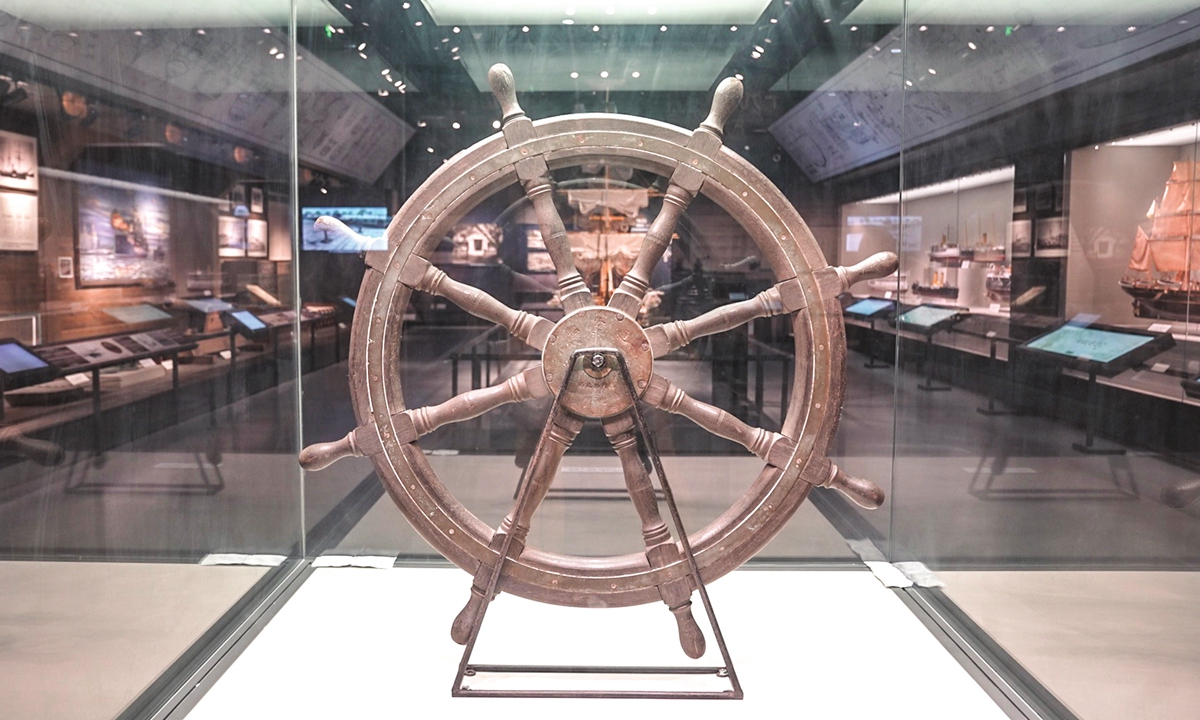
A Qing Dynasty ship's wheel at the the Museum of Foochow Arsenal 1866 Photo: Zhang Yangshu/GT
Cultural heritageKeeping in touch with the descendants of Giquel, Wei Hui expressed his hope to continue fostering the friendship between China and France, following in the footstep of his great grandfather 150 years ago.
He said that he, together with some French experts and researchers studying the shipyard, is preparing to establish a "Friends of Giquel" non-governmental association, with the aim of connecting with the descendants of French nationals who had worked for the arsenal and Chinese students who had studied in France and further promoting the century-long history of China-France exchanges.
Around 3 pm, visitors gradually left the museum and lined up outside a theater at the Mawei shipyard for a show titled The Glory Belongs to Foochow Arsenal. The immersive drama reenacts the friendship between China and France rooted in the shipyard's history.
This drama transforms the machine repair workshop built in 1975 at the shipyard into a movable theater. The seats and the stage both shift as the performance changes scenes.
Since its premiere in December 2023, the drama has been highly popular. During the Spring Festival holidays this year, the team had to give more performances just to cater for the rising popular demand.
"Local authorities attach great importance to the protection of the shipyard's cultural heritage," Yang Mingxin, a deputy director of the Fujian Shipyard Culture Research Association, told the Global Times. "This year, we plan to hold an exhibition in France with the main focus on the inheritance of the shipyard's culture."
"We want to use Foochow Arsenal culture as a channel to further strengthen the friendship and people-people exchanges between China and France," he noted.


